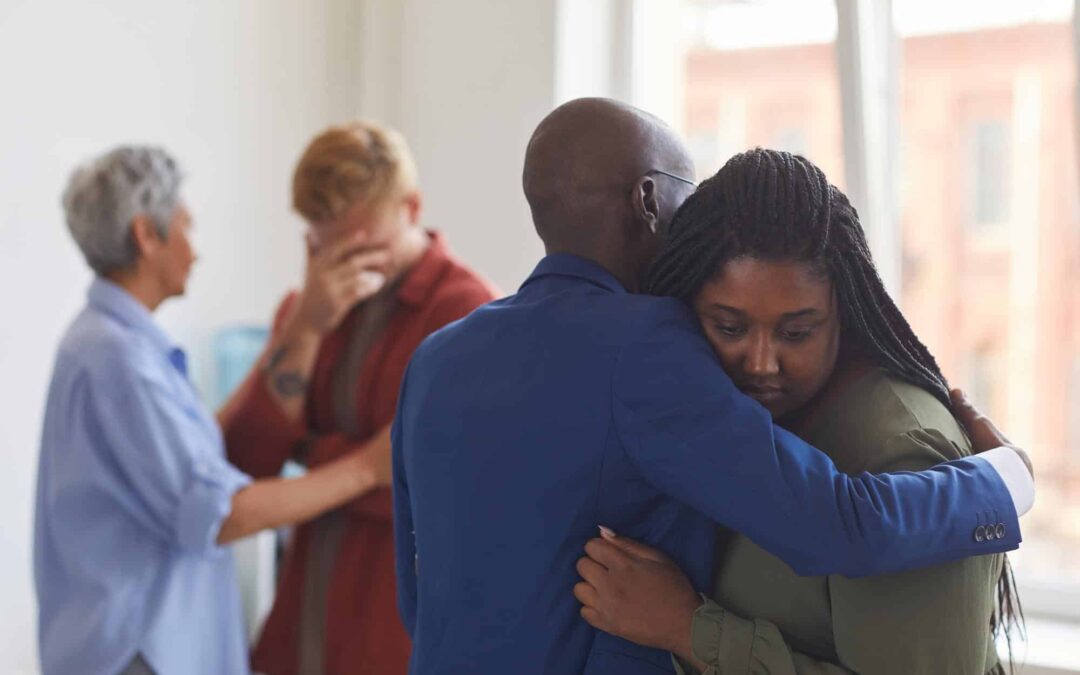The Role of Romantic Relationships in Recovery
Romantic relationships during recovery present both opportunities for growth and potential challenges that require careful navigation. These connections can provide essential emotional support, companionship, and motivation for maintaining sobriety.
Key Benefits of Dating in Recovery:
- Enhanced emotional support system
- Increased accountability
- Development of healthy intimacy skills
- Improved self-worth through positive relationships
The natural high experienced through romantic connections can mirror some of the dopamine releases previously sought through substance use. This biological response helps rewire the brain to seek pleasure through healthy relationships rather than harmful substances.
Potential Risks to Consider:
- Emotional vulnerability during early recovery
- Risk of replacing substance addiction with relationship dependency, which could lead to codependency in relationships
- Possible triggers if partner uses substances
- Challenges in maintaining recovery focus
Dating during recovery requires a delicate balance between pursuing meaningful connections and safeguarding your sobriety journey. The intensity of new romantic relationships can create powerful emotional experiences – both positive and challenging. These feelings need to be processed with healthy coping mechanisms developed during recovery.
Your ability to form and maintain romantic relationships can serve as a meaningful indicator of recovery progress. Successful relationships often reflect improved emotional regulation, communication skills, and overall psychological well-being.
However, it’s important to remember that emotional vulnerability during early recovery can pose significant risks. For instance, if a partner relapses or uses substances, it could trigger a setback in your own recovery process. Understanding the psychology of addiction can provide valuable insights into these situations.
Moreover, establishing boundaries and maintaining a focus on personal recovery goals are crucial when navigating romantic relationships during this transformative phase. Embracing sober living principles can further enhance your chances of successfully balancing love and recovery.
Timing Matters: When to Pursue Romantic Involvement in Recovery

The common “one-year rule” in recovery exists for crucial reasons. This waiting period allows you to:
- Establish a stable foundation in your recovery journey
- Develop essential self-awareness
- Build healthy coping mechanisms
- Create a strong support network
Your brain needs time to reset its reward pathways after addiction. Dating too soon can trigger similar dopamine responses to substance use, potentially compromising your recovery progress.
Key Signs You’re Ready for Dating:
- Consistent participation in recovery programs
- Stable employment or daily routine
- Healthy relationships with family and friends
- Effective stress management skills
- Clear understanding of personal boundaries
During this waiting period, focus on developing crucial relationship skills:
- Active listening
- Emotional regulation
- Conflict resolution
- Setting healthy boundaries
- Clear communication
However, remember that underlying challenges from your addiction might surface when you start dating. Common issues include:
- Trust difficulties
- Fear of vulnerability
- Codependency tendencies
- Past trauma responses
- Difficulty with emotional intimacy
Working through these challenges with your therapist or counselor before pursuing romantic relationships, strengthens your foundation for healthy future partnerships. This preparation period isn’t about restriction – it’s about setting yourself up for successful, fulfilling relationships while maintaining your recovery progress. If you’re struggling with any of these issues, consider reaching out for professional help.
Navigating Challenges: Early Recovery Relationships and Their Impact
Early romantic relationships during recovery can create significant emotional turbulence. The rush of new love produces intense feelings that mirror substance-induced highs, potentially triggering cravings and increasing relapse risks.
Common Risk Factors in Early Recovery Relationships:
- Emotional dependency replacing substance dependency
- Neglecting recovery meetings and support groups
- Skipping therapy sessions to spend time with partner
- Using the relationship to avoid dealing with underlying issues
- Rushing into physical intimacy before emotional readiness
The excitement of a new relationship can mask recovery challenges, creating a false sense of security. You might feel tempted to prioritize romantic connections over essential recovery work, leading to:
- Missed opportunities for self-discovery
- Delayed emotional growth
- Weakened coping mechanisms
- Reduced focus on personal healing
Your recovery journey requires dedicated time and energy for developing crucial life skills. A new relationship can consume mental and emotional resources needed for:
- Building healthy boundaries
- Processing past trauma
- Learning stress management techniques
- Establishing stable daily routines
- Creating strong support networks
Relationships started too early often become intense quickly, making it difficult to maintain balance between recovery needs and romantic desires. This intensity can lead to codependent patterns, where both partners might enable unhealthy behaviors or avoid addressing important recovery-related issues.
Building Healthy Connections: Nurturing Romantic Relationships in Recovery
Building healthy romantic relationships in recovery requires a strong foundation of honest communication and clear boundaries. Your partner needs to understand your recovery journey and support your commitment to sobriety.
Essential Elements of Healthy Recovery Relationships:
- Open Communication: Share your recovery experiences, triggers, and concerns with your partner. This transparency helps build trust and allows them to provide appropriate support.
- Set Clear Boundaries: Establish non-negotiable limits regarding substance use, social situations, and emotional support. Your sobriety must remain a top priority.
- Mutual Understanding: Both partners should educate themselves about addiction and recovery. This knowledge creates empathy and strengthens the relationship foundation.
- Respect Recovery Time: Maintain your commitment to therapy sessions, support group meetings, and other recovery activities. A supportive partner will understand these commitments.
- Healthy Conflict Resolution: Learn to address disagreements without turning to substances. Practice expressing emotions constructively and seeking solutions together.
Creating a balance between romantic relationships and recovery requires patience and dedication. Your partner should enhance your recovery journey, not compromise it. Remember that vulnerability in relationships can strengthen your emotional resilience and support long-term sobriety.
Supportive Foundations: Strengthening Your Recovery Before Entering Romantic Relationships

Building a strong support network creates a stable foundation for your recovery journey. Your friends, family, and support groups are there to provide strength during difficult times and celebrate your victories in sobriety.
The Benefits of a Strong Support System
A strong support system offers:
- Emotional stability – trusted confidants who understand your journey
- Accountability partners – people who help you stay committed to your recovery goals
- Crisis support – immediate assistance during triggering situations
- Social connection – healthy relationships that don’t revolve around substances
How Your Support Network Can Help You Develop Relationship Skills
Your support network can help you develop essential relationship skills such as active listening, setting boundaries, managing conflict, and expressing emotions healthily.
The Unique Benefits of Support Groups
Support groups provide unique benefits through:
- Shared experiences with others in recovery
- Learning from others’ relationship successes and challenges
- Practice in vulnerability and trust-building
- Development of communication skills
These connections create a safety net that strengthens your recovery. When you’ve established strong platonic relationships, you’re better equipped to navigate romantic partnerships. Your support network can offer valuable perspectives on potential relationships and help you maintain focus on your sobriety goals.
Remember to nurture these foundational relationships even as you begin exploring romantic connections. They remain vital components of your long-term recovery success.
Aftercare Treatment: Maintaining Sobriety While Nurturing Relationships
Aftercare treatment serves as a vital bridge between early recovery and long-term sobriety, particularly when navigating romantic relationships. A structured aftercare program helps you maintain focus on your recovery goals while developing healthy relationship patterns.
Key Components of Effective Aftercare During Relationship Building:
- Regular therapy sessions to process relationship challenges
- Group support meetings to share experiences with peers
- Relapse prevention planning that includes relationship triggers
- Stress management techniques for relationship conflicts
Your aftercare program should adapt to include relationship-specific support mechanisms. This might involve couples counseling, communication workshops, or specialized support groups for partners in recovery.
Creating a Balanced Recovery Plan:
- Schedule dedicated time for both recovery activities and relationship nurturing
- Identify potential relationship stressors that could impact sobriety
- Develop coping strategies for relationship-related triggers
- Build a support network that includes both individual and couple-focused resources
Maintaining consistent engagement with your aftercare program strengthens your ability to handle relationship challenges without compromising your sobriety. Regular check-ins with counselors and support groups provide valuable guidance as you navigate the complexities of romance in recovery.
Remember to prioritize your recovery meetings and therapy sessions, even when your relationship feels stable. These ongoing support systems help you maintain emotional balance and provide tools for healthy relationship development.
Long-Term Benefits: Embracing Love on the Path to Lasting Sobriety
A healthy romantic relationship can become a powerful catalyst for sustained recovery. When you prioritize personal growth and maintain your sobriety while building a meaningful connection with another person, you create a foundation for lasting positive change.
Well-managed relationships offer:
- Enhanced emotional support – A partner who understands and supports your recovery journey can provide comfort during challenging times
- Increased accountability – Sharing your life with someone invested in your wellbeing helps reinforce healthy choices
- Greater life satisfaction – Meaningful romantic connections contribute to improved mental health and reduced stress levels
- Stronger coping mechanisms – Learning to navigate relationship challenges while sober builds resilience
- Expanded support network – Your partner’s friends and family can become additional pillars of support
The key lies in maintaining balance. Your recovery must remain a top priority as you build your relationship. When you approach romance with intention and self-awareness, you create space for both personal growth and intimate connection.
Remember that relationship stability in recovery develops gradually. Take time to establish trust, communicate openly about your needs, and celebrate shared victories. A partnership built on mutual understanding and respect becomes an asset in your ongoing journey toward lasting sobriety.





